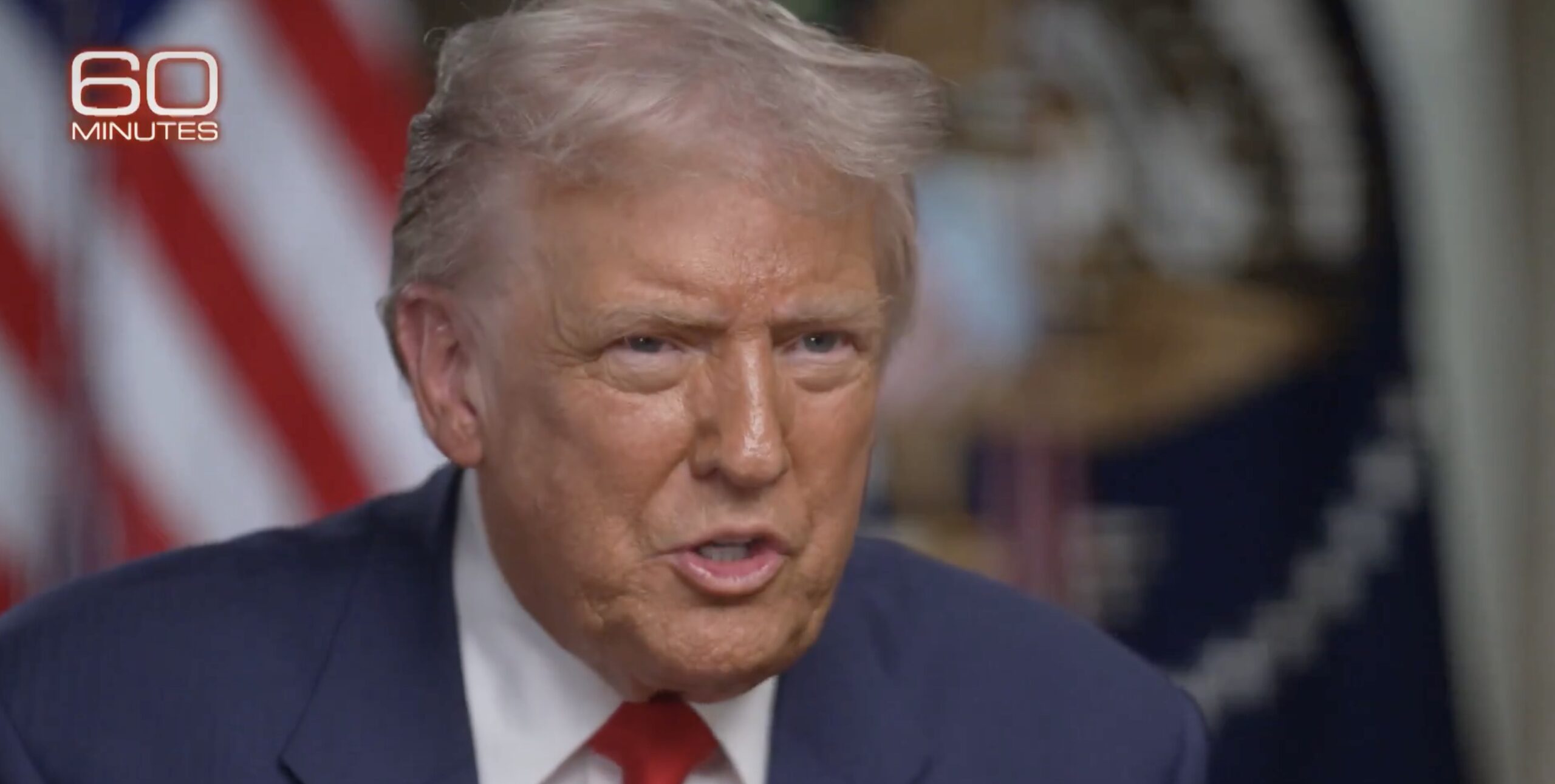UPDATE: In a gripping interview on CBS’s “60 Minutes” this past Sunday, President Donald Trump delivered a powerful defense of Immigration and Customs Enforcement (ICE) tactics, declaring they haven’t gone “far enough” in addressing illegal immigration. The interview, hosted by Norah O’Donnell, took a heated turn as the president faced tough questions about controversial deportation strategies.
During the interview, Trump firmly responded to O’Donnell’s inquiries about the aggressive tactics used by ICE agents, including recent incidents in Chicago where tear gas was deployed and protests erupted. “More recently,” O’Donnell noted, “Americans have been watching videos of ICE tackling a young mother… Have some of these raids gone too far?” Trump’s response was unequivocal: “No, I think they haven’t gone far enough.”
The former president emphasized the necessity of deporting individuals he labeled as “criminals,” stating that many illegal immigrants pose a serious threat. “Many of them are murderers,” he asserted, defending the controversial actions of ICE. Trump’s firm stance drew immediate reactions, showcasing the deep divides in public opinion regarding immigration policy.
As O’Donnell pressed, pointing out that many arrested under Trump’s administration were not violent criminals, he retorted, “Landscapers who are criminals, yeah.” His unwavering answers reflect a strategy that differentiates him from many politicians who often evade direct confrontation on sensitive issues.
In a pivotal moment, O’Donnell asked, “Is it your intent to deport people who do not have a criminal record?” Trump articulated a clear policy position: “You came into the country illegally, you’re gonna go out… but we’re gonna work with you, and you’re gonna come back into our country legally.”
This exchange underscores the ongoing debate over immigration in the United States, particularly surrounding the tactics employed by ICE and the broader implications for communities. Critics argue that such aggressive measures can lead to fear and upheaval among immigrant populations, while supporters contend that strong enforcement is necessary for national security.
Trump’s performance during the interview has already sparked significant discussion online, with many supporters praising his straightforward approach. The exchange taps into a wider narrative of how the Trump administration confronts media scrutiny and public sentiment surrounding immigration.
As the fallout from this interview continues, expect further developments on public reactions and potential policy implications as Trump gears up for a 2024 presidential run. The conversation around immigration remains critical, with the potential to shape voter sentiment ahead of the upcoming elections.
Stay tuned for more updates as this story unfolds.







